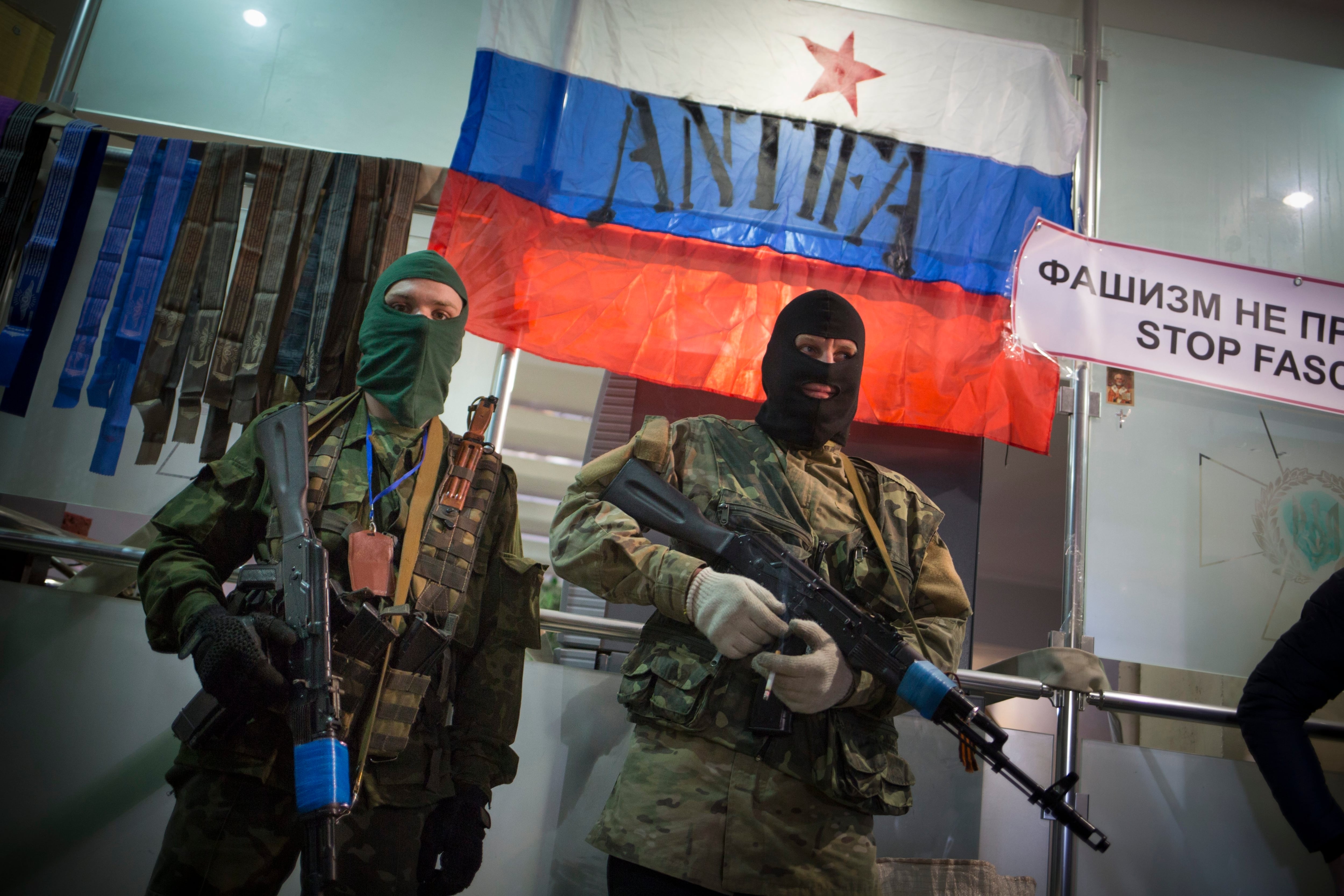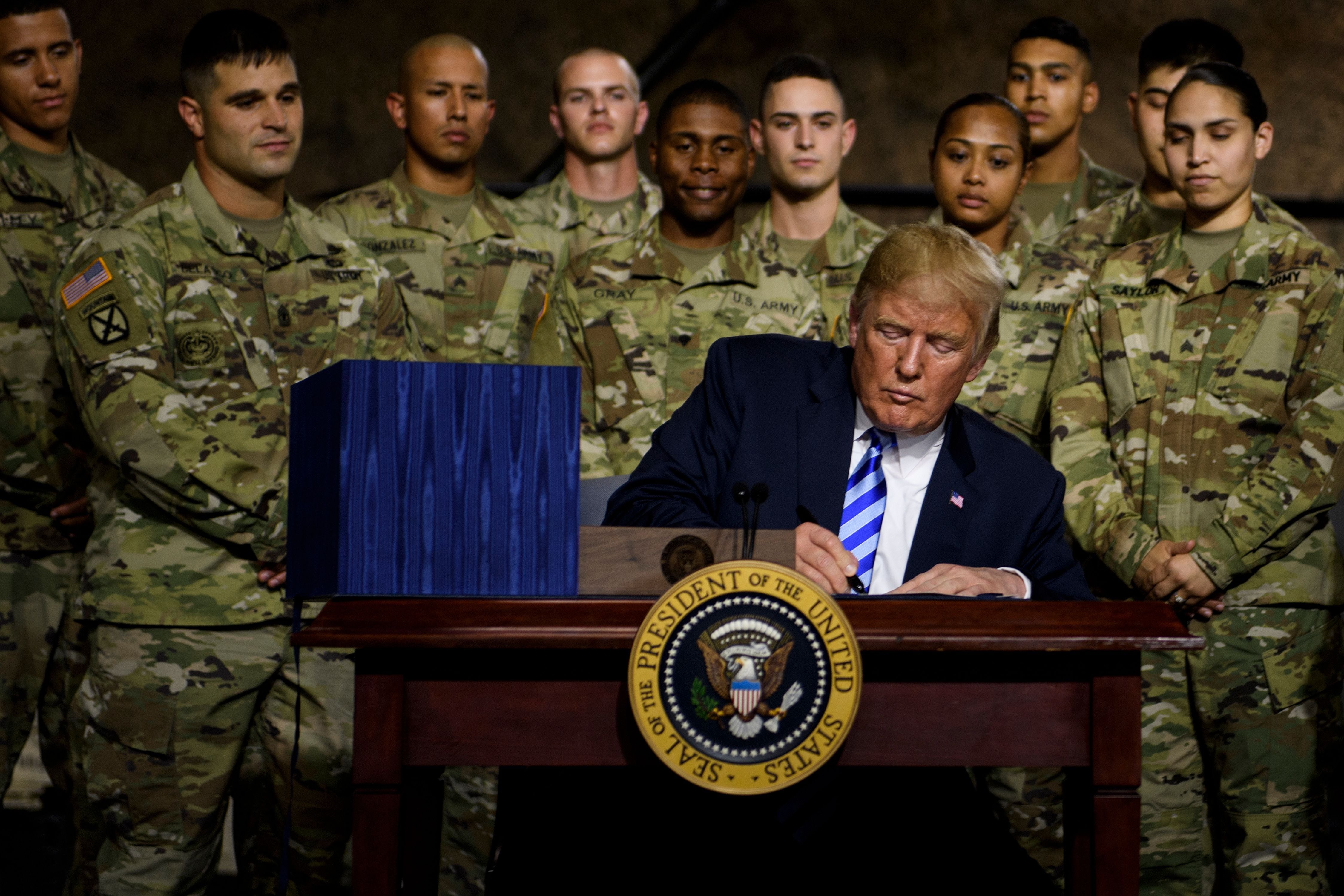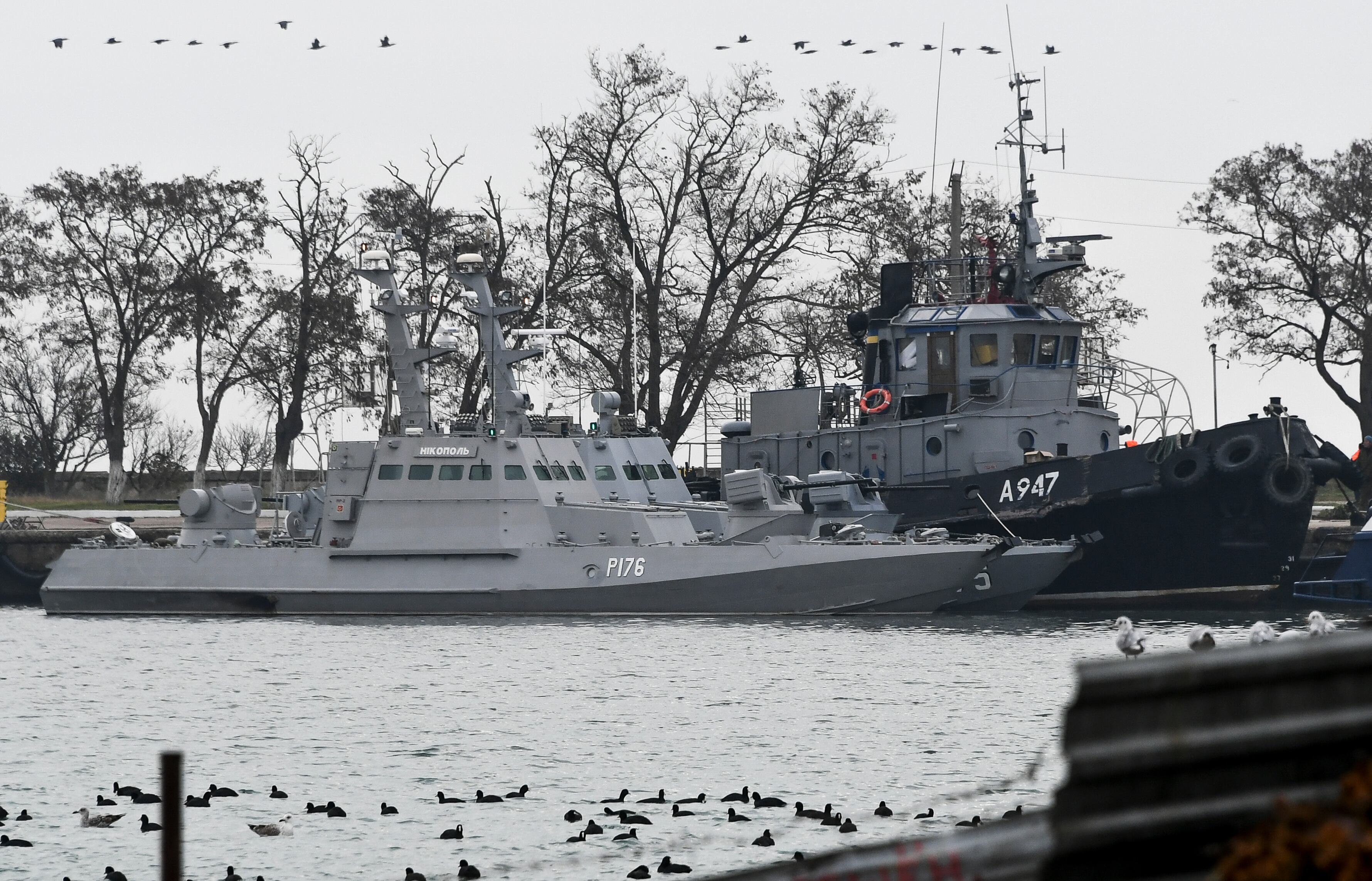2018 defense bill authorized US to provide Ukraine maritime aid
WASHINGTON — Lawmakers from both sides of the aisle are pressuring U.S. President Donald Trump to take a tougher line on Moscow after an incident at sea between Ukraine and Russia, which is ratcheting tensions between the two neighbors.
Several lawmakers expressed concerns after the Ukrainian navy said Russian ships fired on and seized three of its artillery ships Sunday, wounding six Ukrainian crew members. Russia also closed the Kerch Strait, a key waterway between the Azov Sea and Black Sea, placing the two countries the closest they’ve been to open conflict since Moscow annexed Crimea from Ukraine in 2014.
The incident suggests U.S. and European actions have failed to deter Russian aggression and raised the question whether Trump will attempt to rally allies.
RELATED

As the conflict unfolded on Sunday, Trump hit European partners with a Twitter attack over NATO burden-sharing: “The European Union, for many years, has taken advantage of us on Trade, and then they don’t live up to their Military commitment through NATO. Things must change fast!"
Though several world leaders have blamed Russian aggression in the incident, Trump seemed reluctant to do so Monday when reporters asked how he felt about the clash. Trump said, “not good. Not happy about it at all,” adding, “we do not like what’s happening either way. And hopefully it will get straightened out.”
On Monday, the House Foreign Affairs Committee’s ranking member, Rep. Eliot Engel, D-N.Y., said Trump was sending the wrong message, that NATO is divided and unwilling to react, just as Russian President Vladimir Putin is testing its resolve.
Engel, likely to become the committee chairman when the House comes under Democratic control in January, called for a unified and forceful response from the U.S. and its allies, short of war.
“We have to work with our allies in the NATO alliance, and what bothers me is President Trump has trashed the NATO alliance,” Engel told Defense News on Monday. “It’s very difficult when you have the president cozying up to Putin once again, not having a very strong response so far — letting Putin think there will be a lot of handwringing and talk, but not a lot of action.”
“I think it was pretty poor taste and timing for the president to issue a statement about burden-sharing at a time when Russian expansion is full blown,” Engel added. “That sends a message to Russia that we’re thrashing our allies and not going to be willing to work in tandem with them and the NATO alliance.”
Engel also repeated his support for sending Ukraine defensive weaponry, which could make Putin reconsider engaging in aggression.
“If Putin starts seeing Russian soldier fatalities, that changes his equation,” Engel said.
RELATED

Spain and Germany on Monday joined European Union calls on Russia to release Ukrainian sailors and ships, while U.S. Ambassador Nikki Haley — during a United Nations Security Council meeting Monday — called on Russia to “immediately cease its unlawful conduct” in the Black Sea.
Russia, meanwhile, called Ukraine’s actions “dangerous” and said the three Ukrainian vessels illegally crossed into Russian waters.
Senate Armed Services Committee chairman Jim Inhofe, R-Okla., threatened new sanctions on Russia, and called for a coordinated response between the U.S. and its European allies.
“If Putin continues his Black Sea bullying, the United States and Europe must consider imposing additional sanctions on Russia, inserting a greater U.S. and NATO presence in the Black Sea region and increasing military assistance for Ukraine, as called for in the [2018 defense policy law],” Inhofe said in a statement Monday.
Congress authorized the government to provide Ukraine with air defense and coastal defense radars, naval mine and countermine capabilities, and littoral-zone and coastal defense vessels as part of the 2018 defense policy bill.
That legislation was a response to Ukraine losing two-thirds of its naval fleet, which mostly was based in Sevastopol when Russia annexed Crimea.
Ukraine has approximately 71 combat aircraft — older Su-27s and MiG-29s, according to the “Military Balance 2018” of the International Institute for Strategic Studies — and no modern air defense system it might have used to contest Russian actions over the Kerch strait. Its navy is less equipped — one frigate, 10 other surface combatants — and in no shape to challenge Russian dominance of Kerch.
“A new Russian use of force may not compel Trump to respond, but it could energize Congressional efforts to outflank him with additional Russian sanctions,” Byron Callan, a defense sector analyst for Capital Alpha Partners, said in a note to investors. “There is not much time left in the lame duck session of Congress, but these efforts could gain new life in January-February.”
The U.S. and Ukraine were in “close discussion” for Washington to supply another tranche of lethal weapons for Kiev’s fight in eastern Ukraine, Ukrainian Foreign Minister Pavlo Klimkin told reporters Nov. 18, a day after Klimko met with U.S. Secretary of State Mike Pompeo in Washington.
The Senate Foreign Relations Committee’s ranking member, Bob Menendez, D-N.J., in a statement on Monday urged Trump to commit to strong actions before the president meets with Putin at the G20 summit this week.
“Once again, the Kremlin has shown that it only respects a strong adversary that is willing to stand up to bullies,” Menendez said.
Menendez called for tougher sanctions, additional NATO exercises on the Black Sea and for the U.S. to send more security aid to Ukraine, “including lethal maritime equipment and weapons.”
Menendez also warned the president against a repeat of his display at the U.S.-Russia summit in July, where Trump embraced Putin’s assertion that Russia did not interfere in the 2016 U.S. presidential election, over the analysis of U.S. intelligence agencies and his national security advisers.
“At this precarious time, the U.S. cannot afford a weak performance by President Trump at the G20, like we saw in Helsinki. Mr. President this is your opportunity to finally show American leadership in defense of our principles and our close allies across Europe,” Menendez said.
Congress, Menendez added, should pass the bipartisan “Defending American Security from Kremlin Aggression Act,” sponsored earlier this year by Sen. Lindsey Graham, R-S.C. The bill adds measures to strengthen NATO and fight cybercrime, as well as new Russia sanctions on “persons that facilitate illicit and corrupt activities, directly or indirectly, on behalf of Vladimir Putin.”
In a tweet on Monday, the Republican co-chairman of the Senate Ukraine Caucus, Sen. Rob Portman, of Ohio, condemned Russia’s “unprovoked and unwarranted aggression” against the Ukrainian navy in the Azov Sea. He also called the blocking of the ships “an unlawful, hostile action” and said the U.S. "should join the international community in condemning it.”
Portman credited the administration for authorizing the use of lethal aid and facilitating the transfer of two excess Coast Guard patrol boats to the Ukrainian navy.
“That being said, we can, and should look to do more for the Ukrainians with both lethal and non-lethal aid,” Portman said in a separate statement on Monday. "We need to help the Ukrainian people to not only build their military capabilities, but also strengthen their democratic institutions. I will continue to take every opportunity to find ways to help Ukraine — legislatively and otherwise. They are a valued ally who need and deserve our continued support.”
The ranking member of the House Armed Services Committee’s sea power subpanel, Rep. Joe Courtney, D-Conn., called on the United Nations to “sanction this outrage.”
Courtney expressed support for the Ukrainian navy’s right to pass through the Kerch Strait, as governed by international law and bilateral agreements — “not arbitrary Russian diktats ‘closing’ access to Ukrainian territorial waters.”
The Associated Press contributed to this report.
Joe Gould was the senior Pentagon reporter for Defense News, covering the intersection of national security policy, politics and the defense industry. He had previously served as Congress reporter.





